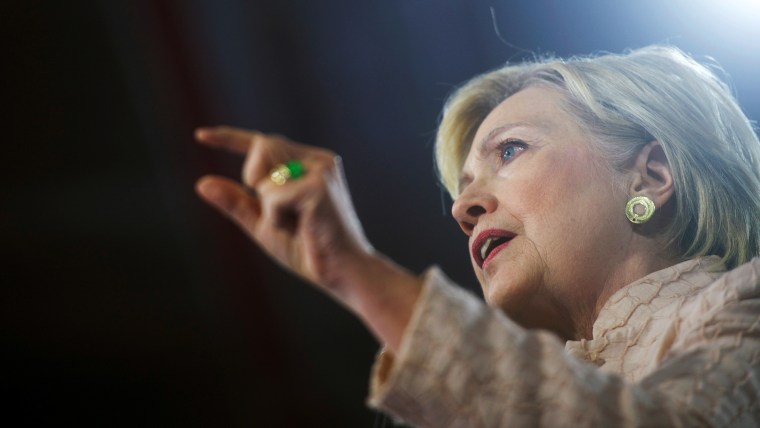There's no doubt the EpiPen can be a life-saving device. The technology is pretty straightforward: for those suffering a dangerous allergic reaction, an EpiPen can deliver emergency epinephrine at a critical time.
The recent controversy, however, has nothing to do with the device's efficacy and everything to do with its price. Since Mylan bought the rights to EpiPen in 2007,
prices have soared -- as have profits, corporate salaries, and the company's lobbying investments.
It's not just consumers who are crying foul; candidates and elected officials have also taken a keen interest of late. The
Wall Street Journal reported late yesterday:
Democratic presidential nominee Hillary Clinton jumped into the fray over rapid price increases for the EpiPen, a life-saving injection for people who are having severe allergic reactions. Mrs. Clinton called the recent price hikes of the EpiPen "outrageous, and just the latest example of a company taking advantage of its consumers."
In a written statement calling for Mylan to scale back EpiPen prices, Clinton added, "It's wrong when drug companies put profits ahead of patients, raising prices without justifying the value behind them."
Congress' summer break won't end for another two weeks, but lawmakers are nevertheless weighing in, too. For example, Sen. Amy Klobuchar (D-Minn.), the ranking Democrat on the Senate Judiciary Committee's antitrust panel, has
called for a Federal Trade Commission investigation.
The
Washington Post added that Sens. Susan Collins (R-Maine) and Claire McCaskill (D-Mo.), the top two members on the Senate's Special Committee on Aging, sent a letter to Mylan's CEO yesterday requesting detailed information on the company's pricing practices.
Note, when it comes to official policymaking, there are two related tracks to keep in mind.
The first has to do with public-relations pressure: candidates and officeholders have heard public concerns and are leaning on Mylan accordingly. Maybe the pressure will work, maybe it won't, but there are plenty of examples of companies backing off under circumstances like these, afraid of becoming a public villain.
The second, meanwhile, has to do with a larger regulatory question and what policymakers might be prepared to do about it. Vox
highlighted this important dynamic the other day:
The story of Mylan's giant EpiPen price increase is, more fundamentally, a story about America's unique drug pricing policies. We are the only developed nation that lets drugmakers set their own prices, maximizing profits the same way sellers of chairs, mugs, shoes, or any other manufactured goods would. In Europe, Canada, and Australia, governments view the market for cures as essentially uncompetitive and set the price as part of a bureaucratic process, similar to how electricity or water are priced in regulated US utility markets. Other countries do this for drugs and medical care -- but not other products, like phones or cars -- because of something fundamentally unique about medication: If consumers can't afford the product, they could have worse odds of living. In some cases, they face quite certain odds of dying. So most governments have decided that keeping these products affordable is a good reason to introduce more government regulation.
Those regulations don't exist in the U.S., and any effort to change this would likely face fierce Republican opposition. But it's something to keep an eye on as the debate over EpiPen prices continues: p.r. pressure can often make a difference, but are candidates and officeholders prepared for a larger conversation about regulating the prices of medicines in order to ensure broader public access?
